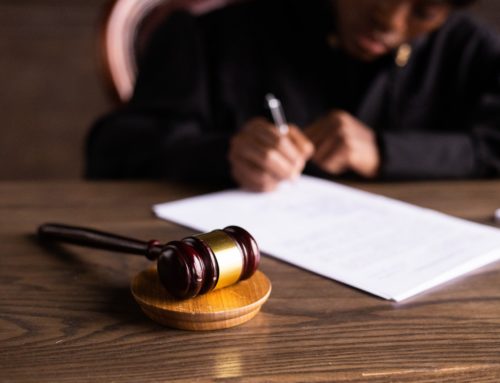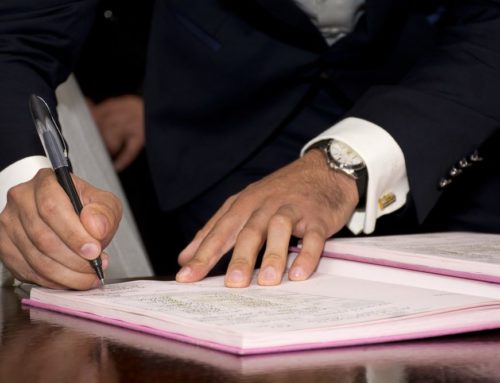In 1941, a few months before the Japanese attack on Pearl Harbor, President Roosevelt spoke of the Four Freedoms – freedom of speech, freedom of worship, freedom from want and freedom from fear.
In World War II, the Japanese army operated in China under what has come to be known as the Three All’s – kill all, burn all and loot all.
Sayings need not be connected with uplifting events or good people to be remembered. They are memorable because they distill the essence of their time and tell the people living in that time something of their reality.
The President was reassuring a nation emerging from the depths of the Great Depression that it had nothing to fear but fear itself. The Japanese army was giving stark notice to the Chinese people of the war crimes to be perpetrated on them in the name of empire.
Our present time is one of anxiety and fear. Can a lawyer say anything memorable about our fear? And about freedom from that fear? Well, as to divorce, let me propose Five Fears and then Five Freedoms from Fear. You be the judge if they hit the essence of our time.
First, the fears.
Fear of Change. Divorce means change of the most radical sort – a change from a married, co-parenting spouse to an often lonely, single parent. This is especially true of the spouse who does not want to be divorced. No one wants to feel like yesterday’s newspaper, but that’s exactly how it is when one’s spouse heads to divorce court. Double yuck, as my kids used to say.
Fear of the Future. Divorce means we no longer enjoy the companionship of our spouse, his or her paycheck, and his or her help with the kids. What shall become of us, we wonder? And, for many – especially divorced women – the answer is a step far down the socio-economic ladder. So far down that the woman who takes it may never make it back to where she started, much less get to where she wants to be.
Fear of Fear. Huh? What’s fear of fear? Very simply, it’s catastrophic thinking. The kind of thinking that says “Oh gosh, I’m getting divorced and I can’t see how I’m going to survive this horrible tragedy. I just know that I’m going to end up homeless and on the street, living in a pasteboard box and pushing a shopping cart loaded with my worldly possessions.”
Fear of Abandonment/Censure. What will people say about me when I get divorced. Will they make fun of me? Pity me? Will my “old” friends still want me around? Can I stay in my church or synagogue? What will the neighbors think?
Finally, Fear That What Is Said About Me Is True. Litigation is tough, divorce litigation even tougher. Suing someone about money is one thing, but filing a suit to tell them they aren’t a good spouse or parent is another entirely. It hits us where we live. Want to get me riled in thirty seconds (or considerably less)? Then criticize me as a parent – tell me I’m a crappy, no-good dad. Coming from an ex or soon to be ex, that will send just about any person into orbit but the terrible part is that, deep down, a lot of us buy into that criticism (which is why we react to it as we do)
So, what about the Five Freedoms from Fear?
Freedom from the Old Ways. Divorce is change, yes, but the manner of the change – for good or for ill – is left to you. Any marriage, even the very best, has its bad, dysfunctional moments. Moments that stifle freedom and spontaneity. Divorce frees us to try new ways and explore fresh modes of living. If embraced, it can be invigorating and exciting.
Freedom to Co-Parent. Many people whom I’ve represented over nearly forty years of family law practice have gotten divorced and gone on to become good friends with their ex and better co-parents in divorce than they were in marriage.
Freedom to Fail. Another definition for divorce is failure. None of us likes to be a failure but we all learn best when we fail, not when we succeed. I once lectured to young lawyers about law practice management. I told them the truth – what qualified me as an expert weren’t my successes but my failures, because in over thirty years I failed in every way a lawyer can fail and still keep his head above water. While I might not be able to tell them how to do something I could certainly tell them how NOT to do it.
Freedom to Be OK. We all indulge in self-pity, some more than others. Divorce frees us to be who we are. Not the greatest but certainly not the worst and we should be ok with that. As the people in AA say, progress not perfection. Being single, we don’t have someone else to blame, or yell at, or sulk around. Just ourselves. I will tell you this, in decades of law practice I’ve represented only a handful (and I mean a handful – fewer than ten) Mother Teresa’s and only a handful of Adolf Hitler’s. Most people are good, decent men and women. They are at their worst in divorce but they have far more in common with each other than they are different from one another. And it’s ok for us to remind them of that. We should, and often, in fact.
Freedom to Forgive. Those of us who are Christian are commanded to forgive our enemies and to pray for those who persecute us. I think the other major religions follow suit. Forgiveness often cannot occur if two persons are in close proximity. Divorce allows us to stand away from the conflict of a bad marriage and let go. I often tell my clients who have small children of my experience when my adult son called to tell me that he was getting divorced. My first thought was of his two children – my grandchildren – and what would become of them. A divorcing parent can give her child no greater gift than to demonstrate true love – by bending over backwards, forgiving and going the second mile with a difficult, oppositional spouse. If your child gets divorced and your grandchildren are in the middle of it, which role model do you want your child to follow? They say that our lives write our memorial addresses. If so, then how we divorce writes the script for how our children and grandchildren will handle such conflict in the future.
-Mark Lewis







